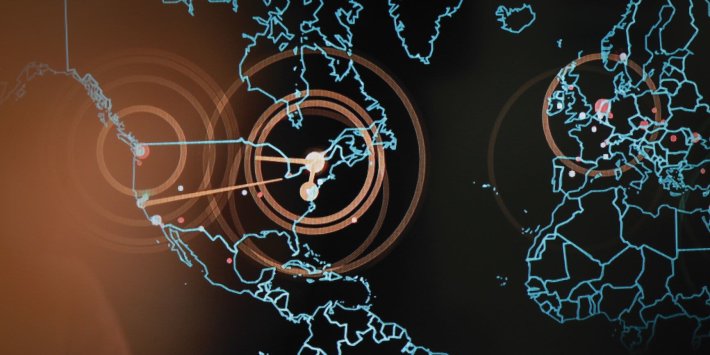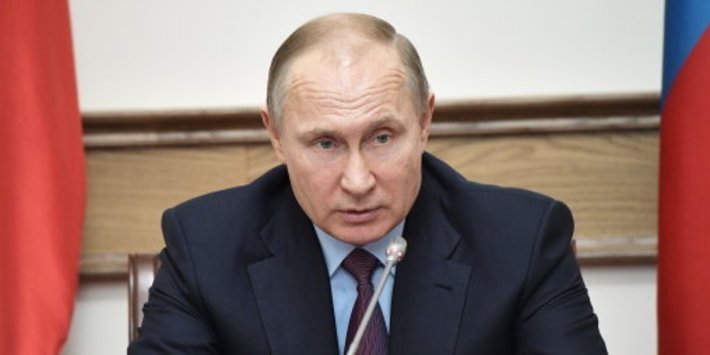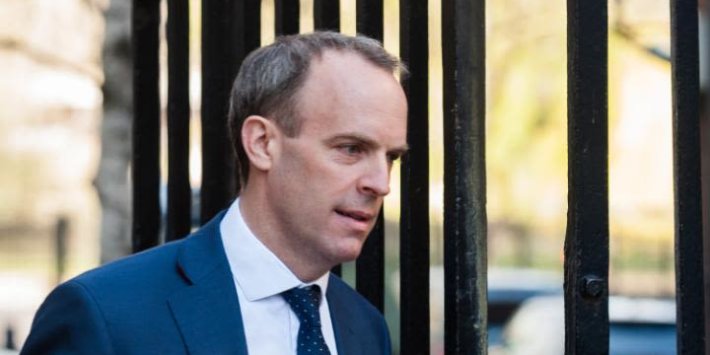Russia report explained: everything you need to know about the landmark Intelligence and Security Committee inquiry into Kremlin influence
Russian President Vladimir Putin. (PA)
10 min read
The heavily-trailed Intelligence and Security Committee report into Russia’s role in the UK may have grabbed headlines for its findings on Brexit and the Scottish referendum. But the inquiry also sheds light on a muddled response to the threat posed by Russia which has persisted for decades. Georgina Bailey reports.
Parliament’s Intelligence and Security Committee (ISC) has finally published its long-awaited Russia report. Despite months of speculation – and thanks to some heavy redaction – there was no smoking gun linking Russian interference to any individuals or election results.
However, the message from the Committee was clear – the scope of Russian involvement in UK public life is greater and more damaging than many envisaged.
The Government has “taken its eye off the ball”. This is not just a condemnation of governments of the last four years and their lack of investigations into alleged meddling in referenda and elections.
Instead the ISC has identified a systemic underestimation of Russia over the decades since the end of the Cold War, dissecting a creeping Russian influence into the UK to a point where it is now so ingrained in some parts of society its nearly impossible to quantify.
Add to this outdated espionage legislation – it is not technically illegal to be a foreign spy in the UK – and the murders and attempted murders of Russian and British nationals on UK soil, then the need for change is clear.
A lack of respect for UK sovereignty and the international rules-based order from the “hard to manage” Russia are laid bare. Other elements of the report are so heavily redacted that we still cannot understand the threats we face. But here are the main challenges that Parliament’s security watchdog believes Putin’s Russia poses to the UK’s security, democracy and stability.
A ‘highly capable’ cyber threat
Russia is a “highly capable cyber actor”, which the ISC says “poses an immediate and urgent threat” to the UK’s national security.
Russian military intelligence, known as the GRU, has carried out a series of malicious cyberattacks in the last 6 years, including phishing attempts against the Foreign and Commonwealth office and the UK’s Defence Science and Technology Laboratory following the Salisbury attacks in 2018.
It attempted to hack the Organisation for the Prohibition of Chemical Weapons in the Hague. Russia also employs organised crime groups to supplement state activity by Russian GRU actors.

However, the ISC found that it was “not immediately apparent” how different Government agencies co-ordinated their response to cyber threats, with at least four government ministers having some responsibility for cyber.
An additional concern was how little time military personnel spend in cyber roles before being rotated — currently moving on after just two years.
Recently, however, the Government has begun to take a “more assertive” stand. The ISC commended ministers for a “cyber attribution” approach, publicly naming Russia as a known malicious actor after cyberattacks.
Continuing this, and encouraging other countries to do the same, will be crucial in tackling Russia’s approach to cyber. The Government has been working on a “offensive” cyber capability since 2013 – however most of the details of this are redacted.
Disinformation, democracy and influence: a ‘hot potato’
There are multiple ways in which Russia attempts to influence democratic institutions and civic life in the UK. However, the Government and intelligence agencies have been unable to keep up with them, the ISC contends, resulting in a fractured, slow, at times ineffective approach.
The ISC is not overly concerned about direct attempts to ‘rig’ UK elections by Russia, stating: “in terms of the direct threat to elections, we have been informed that the mechanics of the UK’s voting system are deemed largely sound.” This is mainly down to Britain’s paper-based voting system, although work is also done on voter registration which is mostly done electronically.
However, it does offer a stark warning about Russia’s influence in spreading disinformation during key elections and political events, particularly through the use of “bots and trolls” on social media. In this type of activity, Russian actors pose as UK nationals and espouse views on social media in a propaganda technique known as “astroturfing”.
Additionally, unlike with television, paper or billboard advertising, online political adverts do not currently have to show any identifying information about who paid for it. The ISC says this encourages foreign actors who wish to interfere in election results to promote certain messages online through seemingly legitimate adverts. The Government is currently working on legislation to change this.

Of particularly concern to the Committee was the “extreme caution” shown by intelligence agencies regarding safeguarding democracy through combatting online disinformation, instead passing the issue on like “a hot potato” to the Electoral Commission and the Department for Culture, Media and Sport.
The intelligence agencies — understandably, some would say — do not want to be accused of interfering in elections. However, when the alternative is Russia or other foreign actors doing just that, the ISC would like MI5 and the Office for Security and Counter-Terrorism (OSCT) in particular to take greater responsibility for tackling online political disinformation.
Responsibility does not solely lie with the Government either. The report is damning on the role of social media companies in tackling disinformation. Although much of the detail is again redacted, the Committee is clear that they tech firms are “failing to play their part”, and social media companies are told to be be much clearer about their commitment to remove hostile state materials from their platforms.
Another source of disinformation is Russian-state international broadcasting, including the RT and Sputnik TV stations. Although not mentioned by name, prominent politicians from many parties have received fees for appearing on RT including former Scottish first minister Alex Salmond, who hosted a chat show, then-shadow justice minister Richard Burgon, and former Foreign Affairs Committee Chair Crispin Bunt.
These channels have been described as Putin’s “pet projects”, and have a strong pro-Russia narrative and reputation for spreading disinformation.
However, they’re given a veneer of credibility by their production values and prominent names who appear on them, which means mean “they may still succeed in casting doubt on the true account of events”, the ISC found.
Open to oligarchs
Russian oligarchs with close links to the Kremlin have been “welcomed with open arms” into the UK, according to the ISC, particularly since the introduction of the ‘investor visa’ in 1994. This has led to a level of integration described as “Londongrad”, giving Russian nationals a high level of influence in UK elite social and business circles.
While the closer links between UK and Russian Business were initially supposed to encourage good governance in Russian companies, in reality they “offered ideal mechanisms by which illicit finance could be recycled through what has been referred to as the London ‘laundromat,’” and the opportunity for “reputation laundering”, the committee writes. The period of time over which this integration has happened now means it is hard to tell what money is “dirty”.
This includes large donations to academic and cultural institutions, as well as charities and political parties, adding to the legitimacy of Russian influence in the UK and further embedding well-connected Kremlin-connected oligarchs in Britain’s business and social scenes.
Although specific examples are not given in the report, last year it was reported that the ISC was briefed on Lubov Chernukhin, a large donor to the Conservative party and the wife of Vladimir Chernukhin, a former ally of the Russian president, Vladimir Putin.

Chernukhin last year paid £160,000 for a tennis match with Boris Johnson and donated more than £450,000 to the party in 2019. Another oligarch apparently discussed was former KGB spy Alexander Lebedev and his son Evgeny, the owners of the London Evening Standard and The Independent newspapers since 2010. Although Alexander Lebedev has been critical of the current Kremlin, he has also hosted events publicly supporting the Russian annexation of Crimea.
The influence of wealthy Russian expatriates is extended through the professionals they hire – described as “enablers”. Whether they realise it or not, there are now a host of UK lawyers, PR firms, accountants and estate agents who work to extend “Russian influence which is often linked to promoting the nefarious interests of the Russian state”, the Committee warns.
Due to the wealth of the individuals involved, these professionals are well-resourced enough to outwit the British state and find loopholes in legislation intended to stamp out undue foreign influence or money-laundering.
In contrast, the National Crime Agency lacks the resources required in terms of financial investigators, technical experts and legal expertise.
To start to combat this influence, the ISC would like a ‘Foreign Agents Registration Act’ to be introduced, similar to that already existing in the US. This is currently being explored by the Law Commission, but it could require anyone other than non-accredited diplomats who represent foreign interest in a “political or quasi-political capacity” to register with the Government and provide information about related activities and financial interactions.
The committee also expresses concerned that “a number of Members of the House of Lords have business interests linked to Russia, or work directly for major Russian companies linked to the Russian state”.
Currently, the financial extent of these relationships do not have to be declared, a seemingly glaring omission in the regulation of one of the UK’s legistlative chambers.
So what has the Government been doing?

Across all the threats identified, the clear sense from the Committee’s report is that the Government has “taken its eye off the ball” when it comes to Russian interference, allowing creeping interference over a prolonged period which is now hard to reverse.
In particular, the Committee casked whether any agency is correctly empowered to tackle the threats Russia poses. There is currently a cross-Whitehall Russia strategy, with the over-arching long-term ‘vision’ of “A Russia that chooses to co-operate, rather than challenge or confront”.
But the Committee notes that 14 departments and agencies are responsible for its implementation. And, underneath that, there are a “plethora of plans and strategies with direct relevance to Russia” in the agencies themselves, with unclear links.
Although no-one is suggesting disregarding democratic process, the system looks particularly convoluted compared to Russia’s highly centralised and responsive approach, where most decisions are made by Putin and his close advisers.
What happens now?
Speaking on Monday night, Foreign Secretary Dominic Raab insisted the UK was “not complacent” about the threat posed by Russia — and “categorically” rejected eye-catching claims from the Intelligence and Security Committee’s member Stewart Hosie that the Government had “actively avoided” looking for evidence Moscow interfered in the 2016 Brexit referendum.
Since the Salisbury attack, the UK Government has been increasingly openly critical of Russian foreign policy and espionage, and tried with some success to bring other countries along with it in this approach.

This marries with the increasingly “hawkish” recent rhetoric and action on China, and could indicate a longer-term shift towards a more publicly assertive stance on foreign interference in democracies around the world.
There are some key areas of legislation that the Government has committed to explore addressing, including foreign agents’ registration, clamping down on money laundering and updating espionage legislation to potentially replace the Official Secrets Act.
However, as many of the detailed recommendations of the report are redacted, it may be that we see the impact of them before we ever hear what they actually are.
